Slowly waking up in paradise
Maria and I have some days off between two charter groups and take advantage of the fact that we don’t have to get up at 6 o’clock to make coffee and breakfast for our guests.
“Hey, do you want to try and surf that reef break on the west side of the island with the paddleboards today?” I hear Maria ask from the galley. I rub the sleepiness from my eyes and stagger into the sailboat’s kitchen. “Let’s go up on deck” I mumble as I pass Maria grabbing my steaming coffee mug.
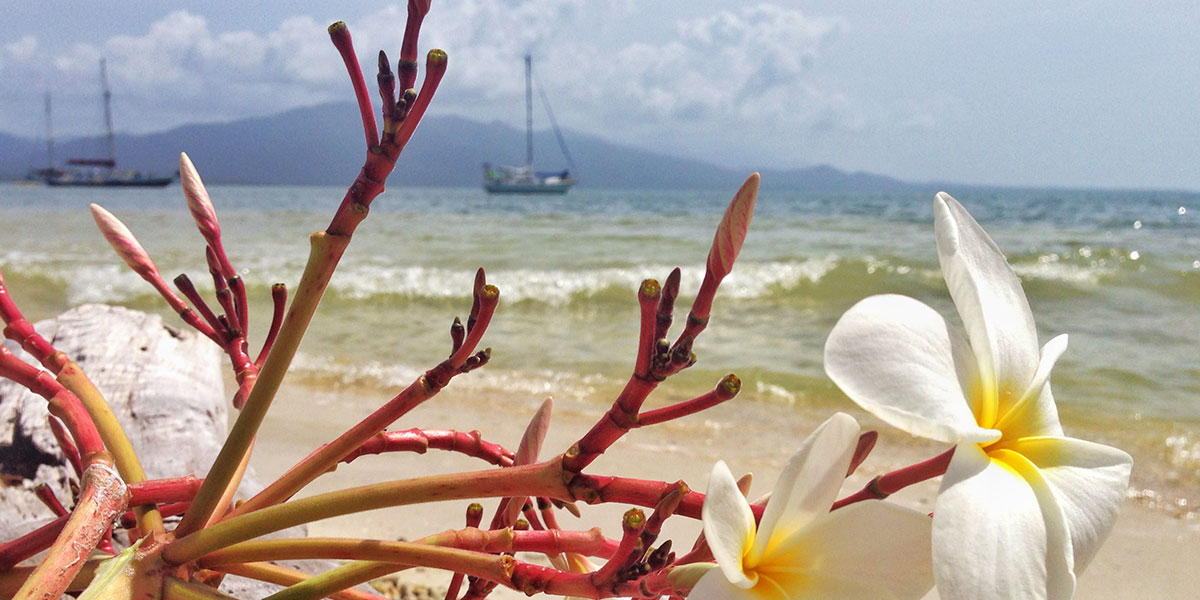
Up on deck, the sun is already bright and I have to squint my eyes to be able to see. We make ourselves comfortable in the shady lounge of Maria’s floating home and slowly welcome the new day. In front of us: the two islands of the Western Cocos which are part of the Guna Yala archipelago. Two of the 360 tiny islands that lay in the north-east of Panama. White sandy beaches ringed by pristine coral reefs, palm trees swaying in the wind. A picture-perfect paradise.
Paddle-boarding to the Western Cocos
We decide to skip the surf and just have a lazy day to recharge our batteries. After a quick morning bite, we jump on the paddleboards and head over to the island. Of course, super sea cow Niko has to come along. Maria’s dog loves to romp around on the beach and chase coconuts. She is also a professional paddleboarder, well, maybe not quite, but she is for sure the cutest boat dog ever.
The eastern island of the Western Cocos is inhabited by a Guna family. The women are dressed in their traditional molas, beautiful colorful artwork that they sew themselves, setting up their craftwork to sell to the tourists. The men are already out hunting for fish or collecting coconuts to sell the “pipas” to the expected island visitors.
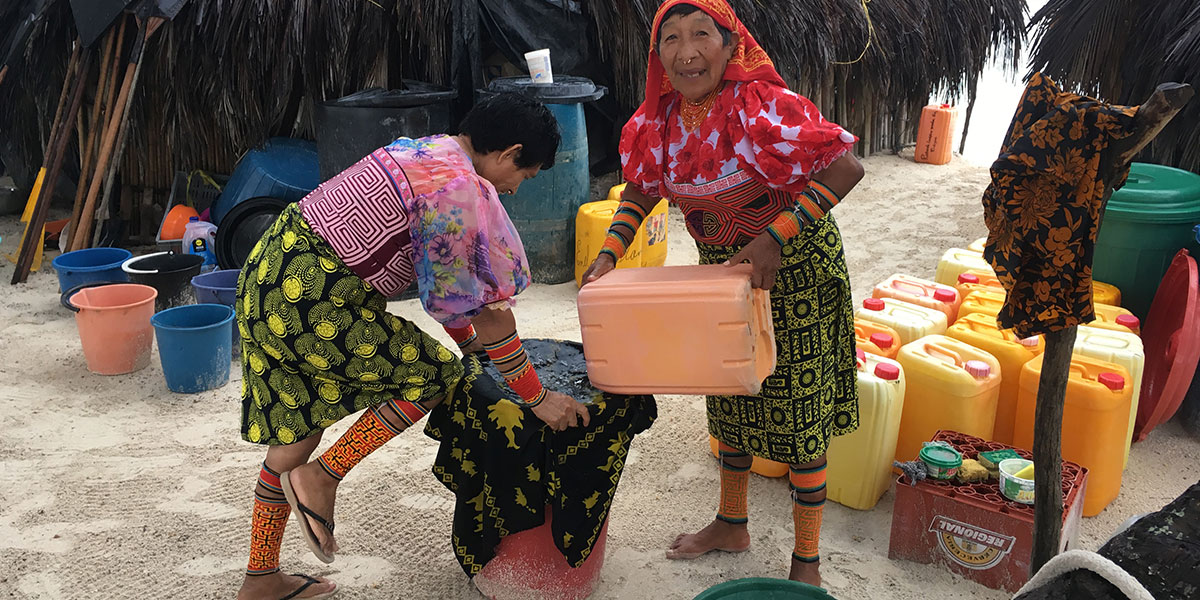
Our paddleboards hit the shoreline of the uninhabited sister island and we step onto the beach. “Clockwise or anti-clockwise?” Niko excitedly takes a big leap to the right and we follow her lead. We start walking through the fine white sand, trying to stay in the cool shade provided by the palm trees. The small waves are gently crashing onto the shore and except the distant ocean roar and the wind in the palm frowns, there is tranquil silence all around.
Something is wrong in paradise
Niko is chasing a crab and our bare feet leave traces in the wet sand. I pick up a coconut for Niko. It’s lying next to an empty water bottle. The empty water bottle is lying next to an old flip flop which is lying next to a half-full shampoo bottle. When you take a closer look, the paradise is starting to tumble. The amount of plastic trash that is within easy vision is uncountable. I can only take a rough guess: maybe 500 items? And that’s only what’s visible at first sight, not including digging deeper between the weeds at the bottom of the trees.
I pick up a bottle, another one and soon my hands are full of trash. Maria joins the collecting but we forgot to bring a bag so we soon reach the limit of what we can carry. We drop the plastic items under a palm tree where someone seems to have already started a collection. “This doesn’t make sense, let’s come back tomorrow with some bags.” Maria is right, the beach clean-up would be a lot more efficient with some collecting bags, so we continue our beach stroll and leave with the promise of coming back the next day.
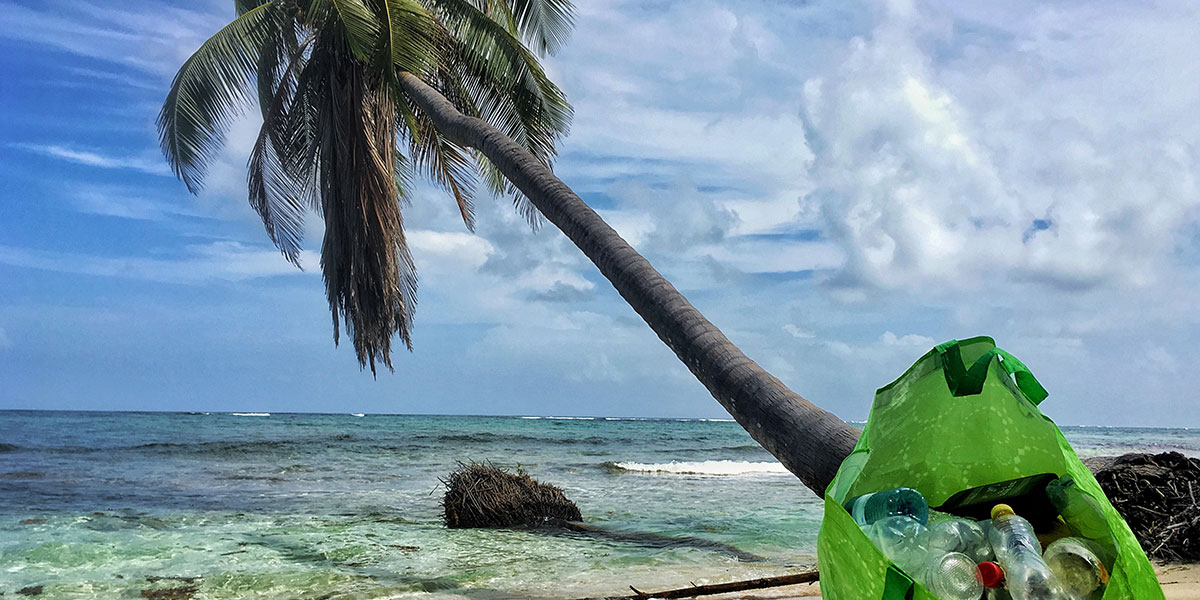
It’s not the first time that we see the signs of plastic pollution. As sailors and liveaboards, we see many distant shorelines with little to no infrastructure. Especially the waste management sector is usually catastrophic, well, nonexistent apart from basic landfills or uncontrolled trash burning. The local communities are not only faced with the challenge of dealing with their trash but also with all the debris that the ocean is spitting out along the shoreline. Trash that nobody feels responsible for.
The mind starts working
Back on 72 feet traditional sailboat Joana, we tackle some small boat projects. There is a weird silence in the air and I can feel that Maria and I are both deep in thought. The amount of plastic that we saw today on the beach was a lot more than what we usually see and it seems to be getting more and more each year. We both still have a big knot in our belly when it’s finally time for a sundowner.
“Somehow we need to find a way to create an incentive for people to collect all this stuff. There has to be a way…” I start, breaking the silence. Maria nods and gazes at the horizon where the sun is setting creating a magical sky painting of reds, pinks, and oranges. “Totally”, she replies “let’s send our energy out there and see what comes from it.”
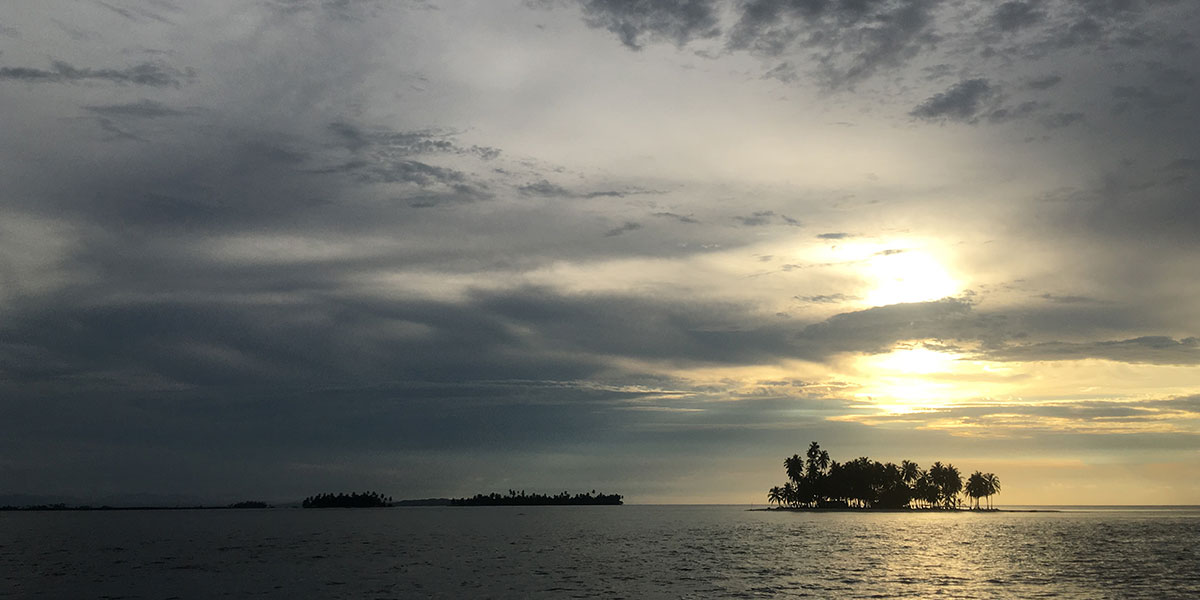
Long after the sun goes down you can still hear Maria and my chatter over the water and see our silhouettes in the shine of our solar lamp. We are spiked up by the energy of wanting to do something good, of wanting to tackle the global problem of plastic pollution. We know that we won’t be the big players in this solution, but we decide that we want to make a difference, even if it might be just on a small, local level.
The next morning, we are up early. Niko senses our excitement, tilts her head and her eyes are asking “does this possibly have to do with throwing coconuts?”. Another sailboat came into the bay last night and anchored in front of the other Coco island. We are a bit slow in the morning, so we are still having our second coffee when we see kayak depart from our new neighbors’ boat.
The woman gets out of her kayak, the cruiser’s version of a car, and starts exploring the island. She comes past the small trash pile and soon we watch her bending down picking up some bottles and adding them to the stash. Maria and I look at each other and think “wow, that was a quick result for just sending out some energy” and start giggling. We gather some reusable shopping bags, some water, and the silly sea cow and depart for the golden shore.
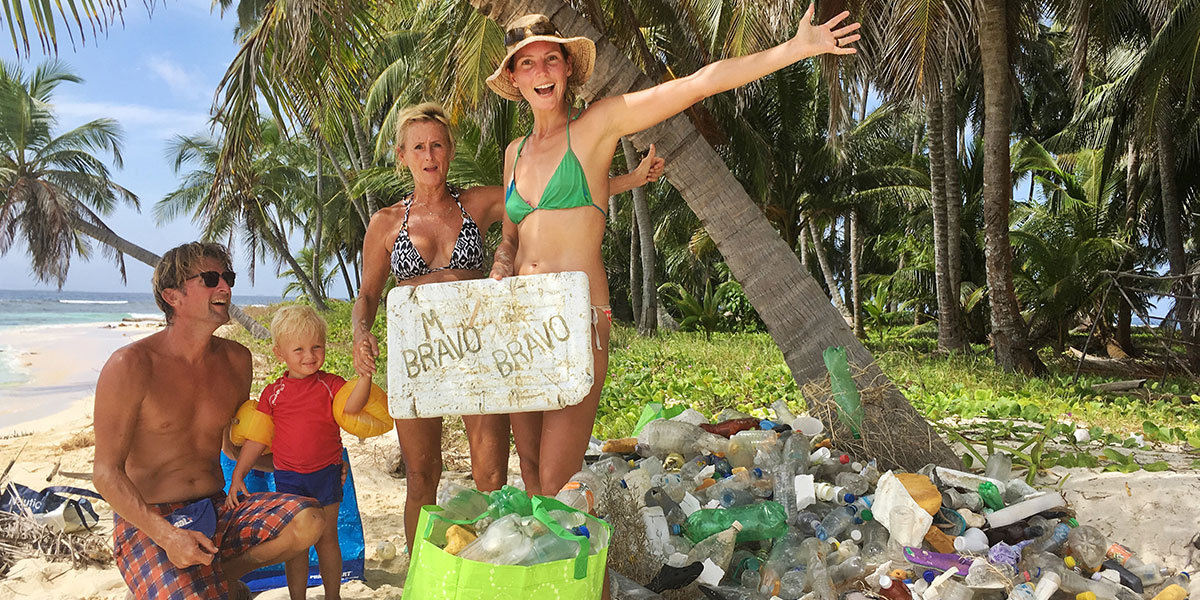
Trash buddies on the move
By the time we start collecting, the female trash warrior is nowhere to be seen. Quickly, our bags start filling, again and again, and the pile below the palm tree grows to a massive pile of threat. The happy back and white furball gives us a heads up: “Hey girls, some people are arriving…coconuts?” It seems that the lady from the other sailboat had a similar experience as us yesterday. She went back to the boat to grab some bags and some support. Now we are five trash buddies cleaning the island and chatting about plastic pollution, beach clean-ups and what we cruisers can do to fight the threat of plastic pollution.
The Western Cocos are tiny islands. Walking around them takes maybe seven minutes. We pick up plastic trash for some two hours and collect some 30 big bags full with five people. We are proud of our accomplishment but we cannot say that it feels very good. Yes, we collected a bunch of trash and most of the island looks clean now, which is great. Most of it. Except for the area around that one specific palm tree that now looks like a small landfill. It’s way too much trash for us to take on our boats. The nearest “proper” landfill is in Panama City. We would have to sail to Carti, anchor up, take a lancha to land and take a pick-up truck over a windy jungle road to get there. Our next charter guests are arriving in two days.
We decide to make a big fire and to burn the trash. It’s not a great solution, we know that. But we cannot leave the trash behind knowing it will be washed into the sea, break down into microplastic, kill animals and destroy the marine environment. It’s naive to think that the burning will do no harm because the emissions are not visible, but we decide that it’s the option with the smaller negative impact on the environment.
Something has changed
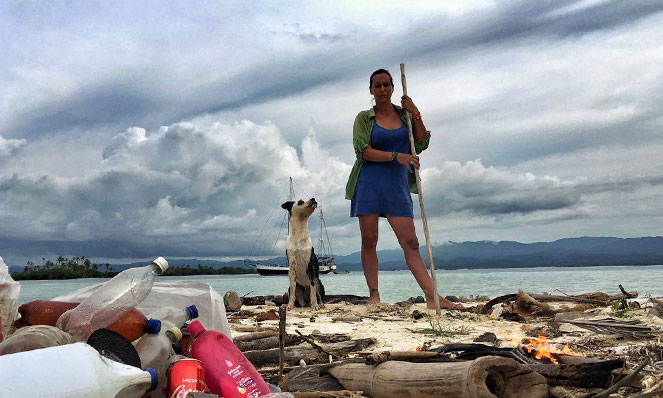
Tonight, the feelings are very mixed. There is the euphoria of collecting all this plastic trash, of sharing the passion for the environment with like-minded people. The urge of wanting to give something back to mother nature’s beautiful ocean. But there is also a side taste of anger and helplessness. Anger that waste management is so bad that it leads to such a drastic extent of pollution. And helplessness because we see how small and powerless we are in comparison to the grandness of this threat.
We have done beach clean-ups before. And yes, we have burnt ocean trash before. But, tonight something is different. Something has changed. We have changed. We don’t want to feel small and helpless anymore. We want to get IN MOCEAN and catch the wave to a cleaner tomorrow. We don’t know how, yet, but we want to keep sending that energy out there and start fighting plastic pollution for real. We already carry the most important thing inside us: hope.
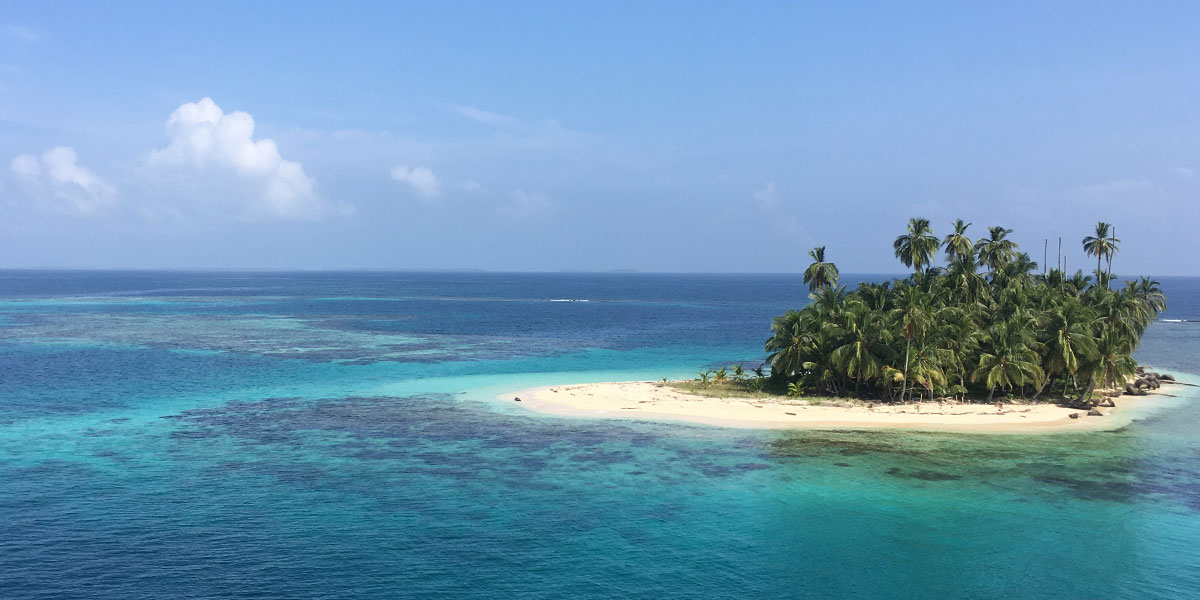
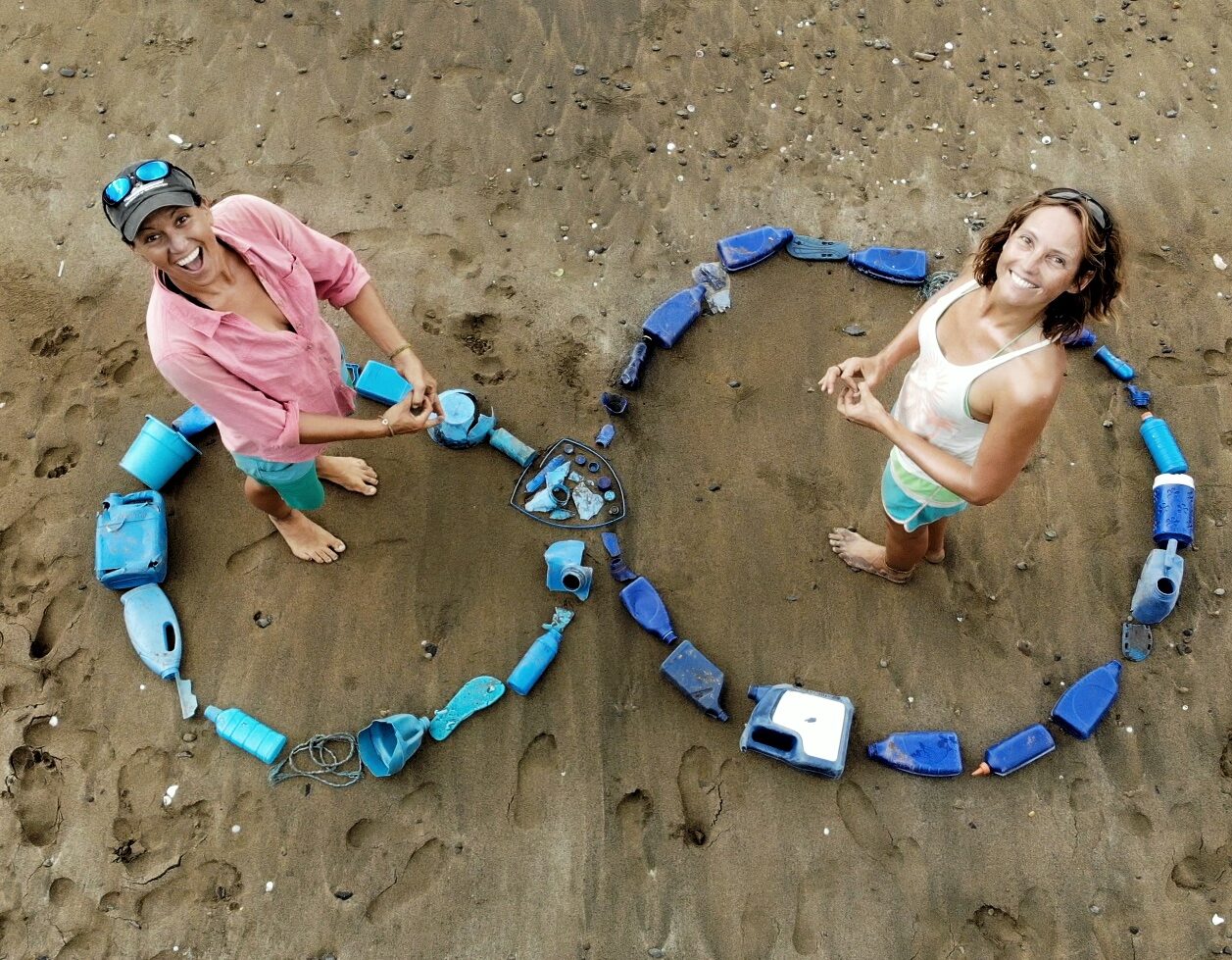
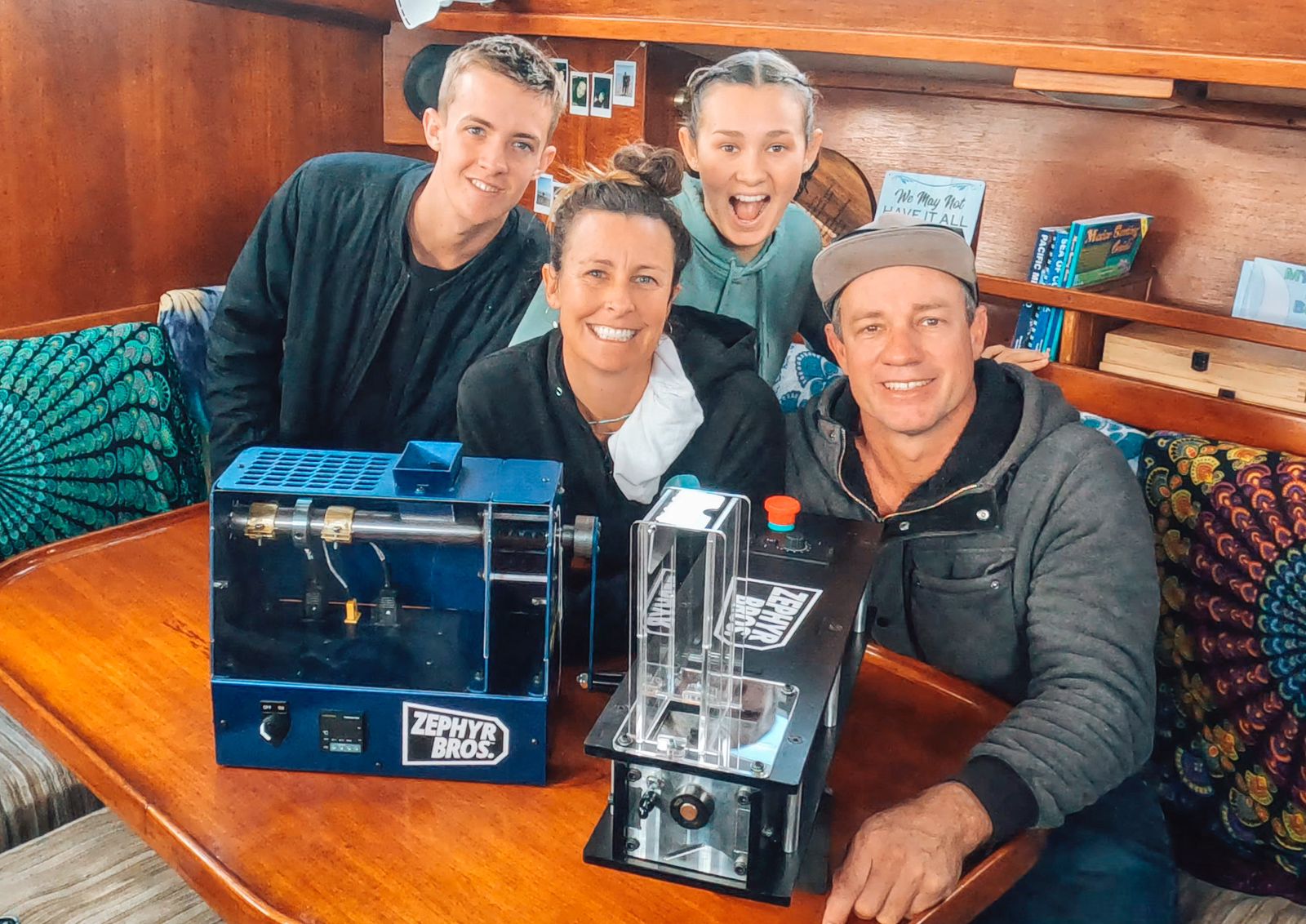
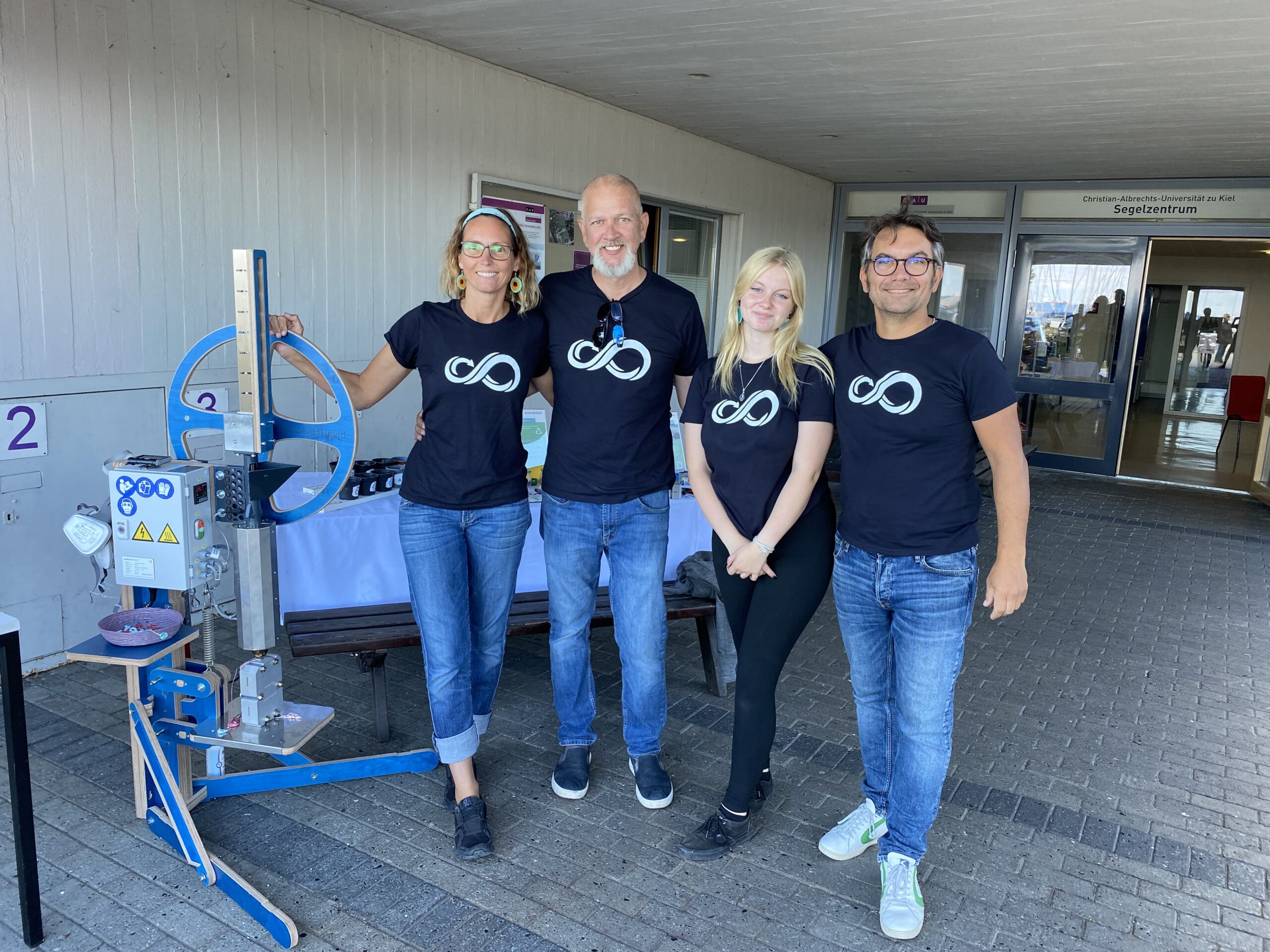
2 Responses
This paragraph repeats twice: Hey, do you want to try and surf that reef break on the west side of the island with the paddleboards today?” I hear Maria ask from the galley. I rub the sleepiness from my eyes and stagger into the sailboat’s kitchen. “Let’s go up on deck” I mumble as I pass Maria grabbing my steaming coffee mug.
Think it should be Black and white: The happy back and white furball gives us a heads up:
Hi Tomas,
thanks so much for the heads up, I deleted the doubled section.
Cheers,
Nike